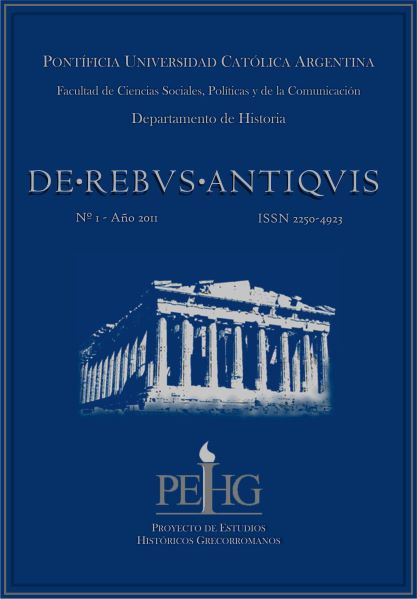Paulus Orosius: an interpretation of the christian providential historiography before the fall of Rome in 410
Keywords:
West Roman Empire, Fall of Rome, Poltical Myth, Paulus OrosiusAbstract
Above the historical studding of the Roman Empire, religious and political life has seen particularly overlapped. The political myth has been fundamental to tack the coming of the central historical facts in the roman way of life. The fall of Rome or the end of the Pars Occidentalis of the Roman Empire have served as historical archetype or political reference for the rest of the empire of the occidental world. This work will be insert in this context, and will intent to give some light to a theme full of historiographical and analytical lines, not only differentes but antagonistic. The centre of the historiographical discord of today will be put in synchrony with that of yesterday, since both pagans like Christians forged during Late Antiquity a myth of the end of cycle that adds a particular fascination to this matter. In this paper I’ll try to interpret de position of the Roman-Christian historian Paulus Orosius, who described his own vision about the facts that preceded and provoke the fall of Rome.
Downloads
Downloads
Published
How to Cite
Issue
Section
License










